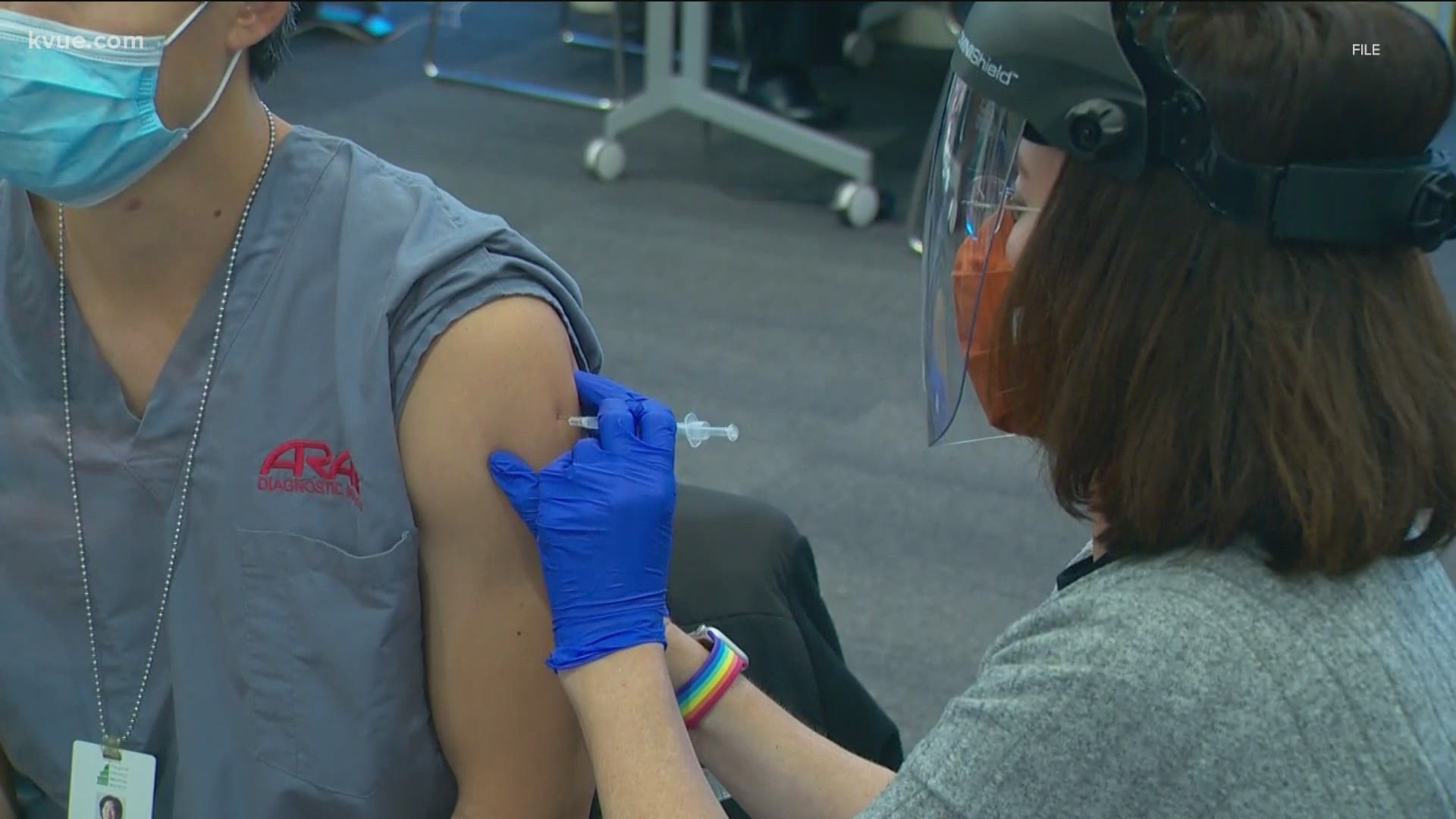AUSTIN, Texas — Baylor, Scott & White and Ascension are both requiring their entire workforce to get vaccinated, and both President Joe Biden and Austin Mayor Steve Adler have mentioned mandating that federal and City employees get vaccines.
Employment attorney Dan Ross joined KVUE Midday to answer legal questions about vaccine mandates.
Terri Gruca: We saw this with Methodist Hospital employees in Houston kind of losing their fight against this. Is this legal?
Dan Ross: "Well, according to the EEOC, which is the Equal Employment Opportunity Commission of the federal government, it is OK for employers to mandate that their employees be vaccinated in order to come to work. There are a couple of exceptions, however.
No. 1, if a person has a sincerely held religious belief that the vaccine is – that they should not be taking a vaccine, then there, perhaps, are some religious accommodations that can be that that employer may be required to follow under law. For example, if you have a religion or [are] of a religion that requires health care to be, to not allow any sort of vaccine into the body, that would be something that would be, would be illegal unless the company tried to accommodate that individual. And accommodations could be anything up to allowing that person to work remotely or it could even be something where that particular person had to be remained masked at work. Those accommodations would be sufficient to overcome the religious exemption under Title 7, which is the federal law that governs discrimination in employment.
Secondly, a person could have an underlying health condition, a serious health condition that would impact the Americans with Disabilities Act. So you – a person, for example, with diabetes may have a valid reason to not take a vaccine or to not be exposed to people at work who are perhaps not vaccinated or even those that are vaccinated, as we find out now that there are infections that even vaccinated people can spread."
Gruca: So, Dan, let me interrupt here for just a second. Does this set a precedent moving forward? If we do, if we are forced to get a vaccine, if people are forced to get a vaccine, does that change the precedent for future vaccinations, too?
Ross: "Well, let's look at what we define as 'forced.' You are not, in Texas, Texas being an at-will employment state, you are not required to go to work for any particular company. So, the trade-off is, 'Well, if you want to work here, you must be vaccinated.' [It] is not a requirement that, that the people be vaccinated because they could always, they could always leave their position. So, it's kind of a, it's kind of one of those gray areas."
Gruca: So, what about the fact that this is an emergency use approval situation right now? This has not gone through final approval through the FDA.
Ross: "That can be an individual reason for someone not to, certainly, for someone not to want to take the vaccine. But at this point, that in and of itself is not going to – it's not going to prevent an employer from requiring a vaccine or that people be vaccinated for them to come to work again. With the exception of if that person has a sincerely held religious belief that prevents them from being vaccinated."
Gruca: Any idea if there will continue to be challenges with this?
Ross: "I believe there will be. I think this will go up in the court system. There has been, as we've talked about, for example, a lawsuit in Houston that was basically 175 health care workers who said, 'We are being required to take an experimental vaccine and we should not have to be subjected to an experimental vaccine.' That particular lawsuit was summarily dismissed by the judge. And so, I expect it to go up on appeal if it's not on appeal anyway at this point.
So, as things work up the court system, we'll find out more and more guidance."
PEOPLE ARE ALSO READING:

